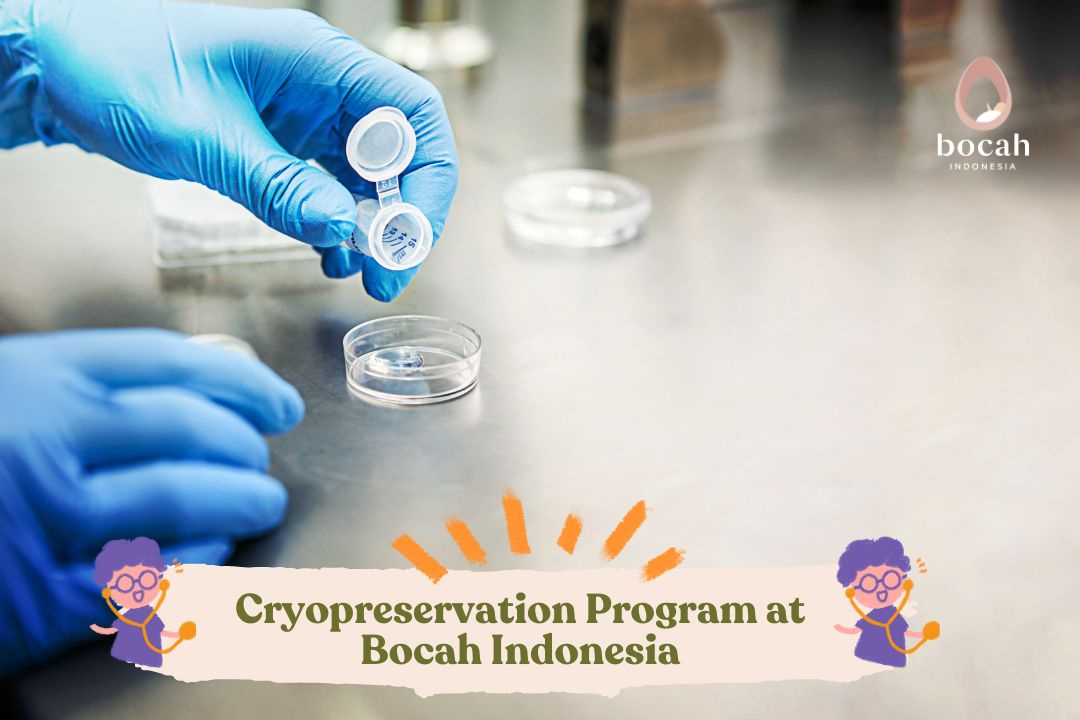3 Interesting Facts About Cryopreservation at Bocah Indonesia

Cryopreservation is a technique that can be used to store and preserve eggs, sperm, and embryos for future use at a temperature of -196 degrees Celsius.
One of the options for couples who want to maintain fertility is to undergo the cryopreservation procedure. This is often done by individuals or couples who wish to preserve fertility by freezing eggs, sperm, or embryos for future use.
This procedure is one of the ways to address fertility issues in both men and women. Cryopreservation is carried out to maintain the quality of eggs, sperm, and embryos so that they remain viable.
Who Can Undergo Cryopreservation?
For women who want to freeze their eggs (egg freezing), there are several indications, such as:
- Women who wish to delay pregnancy for personal or professional reasons.
- Women undergoing medical treatments, such as for diabetes, cancer, and others, which may affect fertility.
- Women from families with a history of early menopause.
For men who want to freeze their sperm (sperm freezing), there are several indications, such as:
Tanya Mincah tentang Promil?
- Men with a low sperm count.
- Men who want to delay having children.
- Men with high mobility, making it difficult to be present when undergoing a pregnancy program.
- Men undergoing therapies or treatments that may reduce fertility, such as those involving high radiation.
- Men who have undergone a vasectomy.
Embryo freezing is typically done for married couples undergoing an in vitro fertilization (IVF) program. In this case, patients eligible for cryopreservation are those with surplus embryos intended for future use or those unable to perform a fresh embryo transfer due to certain conditions.
Interesting Facts About Cryopreservation
Before undergoing cryopreservation, parents should be aware of some interesting facts about the process at Bocah Indonesia.
1. Using Imported Cryopreservation Materials
According to Dr. Maitra Djiang Wen, Sp.And, Subs. FER, MClinEmbryol, a specialist in andrology with a subspecialty in fertility and head of the embryology laboratory at Bocah Indonesia, the cryopreservation materials used are imported from Japan due to their high quality. These materials, known as “cryoprotectants,” are used in the cryopreservation process at Bocah Indonesia.
2. No Time Limit for Cryopreservation
Another interesting fact is that there is no specific time limit for cryopreservation. Legally, based on Indonesian Ministry of Health Regulation No. 43 of 2015, Article 14, Paragraph 3, embryos can be stored for up to 2 years and extended if necessary. If the period exceeds the limit, storage can be extended at the patient’s request. If the patient does not wish to extend, the eggs, sperm, and embryos will be destroyed.
3. No Quality Change
When eggs, sperm, or embryos are cryopreserved, there is no significant change in quality. However, it is essential to monitor the level of nitrogen liquid to ensure it does not run out, which could disrupt the storage function.
Those are some interesting facts if you are considering cryopreservation at Bocah Indonesia. Interested in the cryopreservation procedure? Consult with your doctor right away.
Source:
- Jaiswal, AN., Vagga, A. (2022). Cryopreservation: A Review Article. Cureus. 2022 Nov; 14(11): e31564.
- Petropanagos, A., et al. (2015). Social egg freezing: risk, benefits and other considerations. CMAJ. 2015 Jun 16; 187(9): 666–669.
- Jang, TH., et al. (2017). Cryopreservation and its clinical applications. Integr Med Res. 2017 Mar; 6(1): 12–18.


